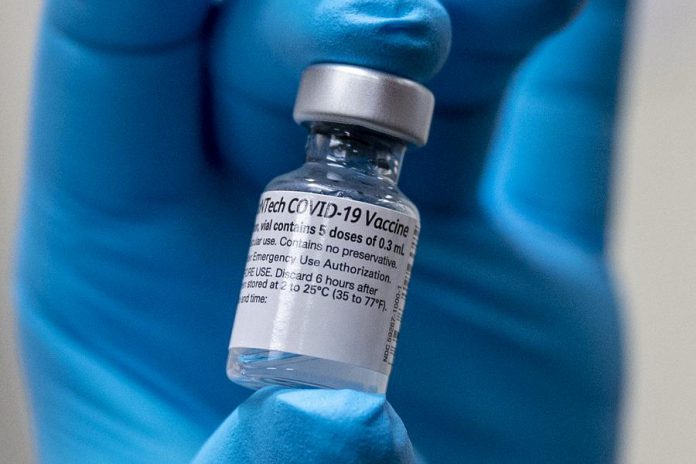
The Haliburton, Kawartha, Pine Ridge District Health Unit is set to receive around 4,500 doses of the Pfizer-BioNTech COVID-19 vaccine next week, according to the acting medical officer of health.
In a virtual media briefing on Wednesday (February 17), Dr. Ian Gemmill said the incoming supply will be distributed to long-term care staff, essential caregivers, and other high-priority healthcare workers.
“The floodgates haven’t opened, but the supply is improving,” said Dr. Gemmill. “The vaccine will be sent to both Ross Memorial Hospital and Northumberland Hills Hospital because both of these hospitals now have the ultra-cold freezer capability to store them. These two hospitals will be able to help us in starting to get the staff immunized.”
A first dose of the Moderna mRNA vaccine has already been distributed to the approximate 1,700 long-term care residents who live in the region. Dr. Gemmill noted that it took two weeks to inoculate these residents, but that timeline was determined by the supply of vaccine and not the health unit’s speed.
Another central topic of the media briefing was the measures to keep cases down until mass immunization is achieved.
On Tuesday (February 16), the health unit region — which includes the City of Kawartha Lakes, Northumberland County, and Haliburton County — moved into the “Orange-Restrict” level of Ontario’s COVID-19 response framework. Dr. Gemmill reminded the public that the provincial government decides which level the region is put in, not the local health unit.
Dr. Gemmill strongly advised residents of the area to continue staying home unless for essential purposes such as work, school, or shopping for essential items, even now that the stay-at-home order has been lifted.
“While more services are available and more shops will be open, this does not mean that things are back to normal or that we should behave as though things are back to normal,” noted Dr. Gemmill.
“I know people want to get their hair cut, and I know people want to go to different shops. I don’t think that’s going to be the problem. What I am very worried about is when we start to relax things, people think that things are better.”
Dr. Gemmill urged residents who do avail themselves of the businesses and services that recently reopened to do so safely, by wearing face masks and physically distancing, and to continue to avoid social gatherings.
“Relaxing doesn’t mean we can gather,” he said. “Relaxing doesn’t mean we can have parties. Numbers went down not because things are getting better or there are fewer susceptible people. The reason they went down is because we had a stay-at-home order.”
In response to concerns voiced about spread coming from individuals visiting the area from other regions, Dr. Gemmill said the current measures advise against travel, but there is technically nothing in place to prevent those who own property in the area from doing so.
“If you’re here, that’s fine, but stay at your property,” was Dr. Gemmill’s message to individuals visiting the area. “Don’t be going out or gathering. If you need essential items, that is fine but do it in a way that has been recommended.”
Of the cases diagnosed in the last 14 days, Dr. Gemmill said most are not in outbreaks, so the health unit is concerned spread is coming from social gatherings.
Dr. Gemmill confirmed the first case of the COVID-19 UK variant case in the region was diagnosed in Port Hope last week. There have been two more cases of the variant reported since but, according to Dr. Gemmill, they’re in the same household.
“Since they’ve all been quarantined, I’m not particularly worried about the cases,” he assured.
As for the spread of COVID-19 variants across Ontario, Dr. Gemmill shared his concerns. If a recent COVID-19 variant becomes the dominant version, “that means more cases and more transmissibility,” he remarked.
“We’re in a race against the virus, and now we’re in a race against the variant.”
As of February 17, there are 45 active cases of COVID-19 in the health unit’s region, including 25 in Kawartha Lakes, 19 in Northumberland, and 1 in Haliburton.


























